Entry Category: Foodways
Distilleries
Dixie Cafe
 Doe's Eat Place
Doe's Eat Place
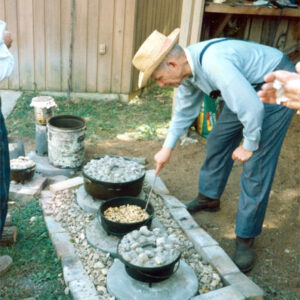 Dutch Oven
Dutch Oven
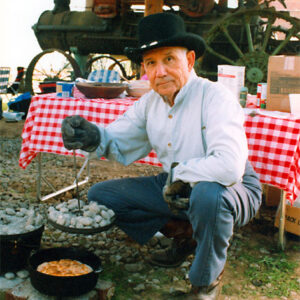 Dutch Oven
Dutch Oven
 Ed Walker's Curb Service
Ed Walker's Curb Service
 Ed Walker's Drive-in and Restaurant
Ed Walker's Drive-in and Restaurant
Ed Walker’s Drive-in and Restaurant
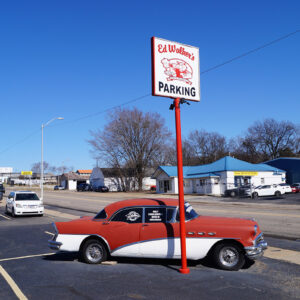 Ed Walker's Parking
Ed Walker's Parking
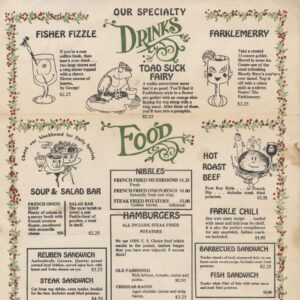 Farkleberry Menu
Farkleberry Menu
 Farkleberry Menu Back
Farkleberry Menu Back
 Feltner's Whatta-Burger
Feltner's Whatta-Burger
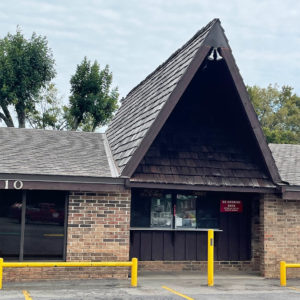 Feltner's Whatta-Burger Window
Feltner's Whatta-Burger Window
Feltner’s Whatta-Burger
Food and Foodways
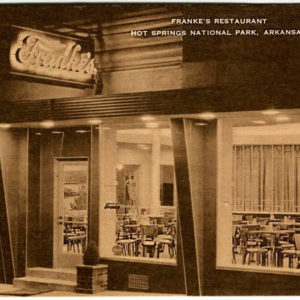 Franke's
Franke's
 Franke's Box Lunch Menu
Franke's Box Lunch Menu
 Franke's Cafeteria
Franke's Cafeteria
 Franke's Cafeteria Sign
Franke's Cafeteria Sign
Franke’s Cafeteria
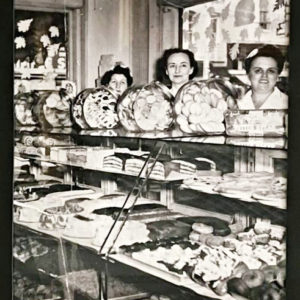 Franke’s Donut Shop
Franke’s Donut Shop
Fried Dill Pickles
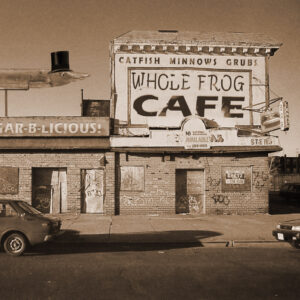 Garbecue Purveyor
Garbecue Purveyor
 Grape Bins
Grape Bins
 Grape Varieties
Grape Varieties
 Grape-harvesting Machine
Grape-harvesting Machine
 Grapette Bottle Cap
Grapette Bottle Cap
 Grapette Bottle Opener
Grapette Bottle Opener
Grapette International, Inc.
 Grapette Jingle
Grapette Jingle
 Grapette Brochure
Grapette Brochure
 Grapette Patches
Grapette Patches
 Grapette Sign
Grapette Sign
 Greek Folk Dancing
Greek Folk Dancing
Greek Food Festival
aka: International Greek Food Festival
 Greek Costumes
Greek Costumes
 Greek Food
Greek Food
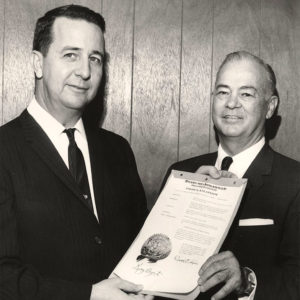 Carl Hall
Carl Hall
 Wes Hall
Wes Hall
 Wes Hall and Vernon Rodgers
Wes Hall and Vernon Rodgers
 Wes Hall and Motor Home
Wes Hall and Motor Home
 Hardman Site
Hardman Site
 Harvesting Grapes
Harvesting Grapes
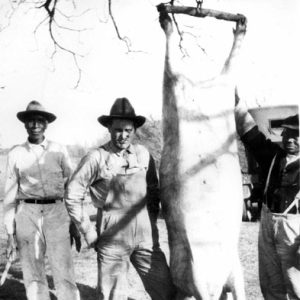 Hog Butchering
Hog Butchering
 Hot Springs Distilling
Hot Springs Distilling
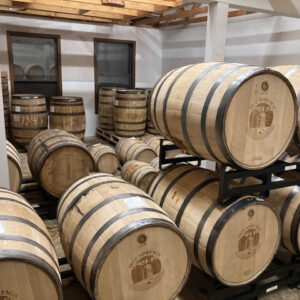 Hot Springs Distilling Barrels
Hot Springs Distilling Barrels
 Hot Springs Distilling Equipment
Hot Springs Distilling Equipment




